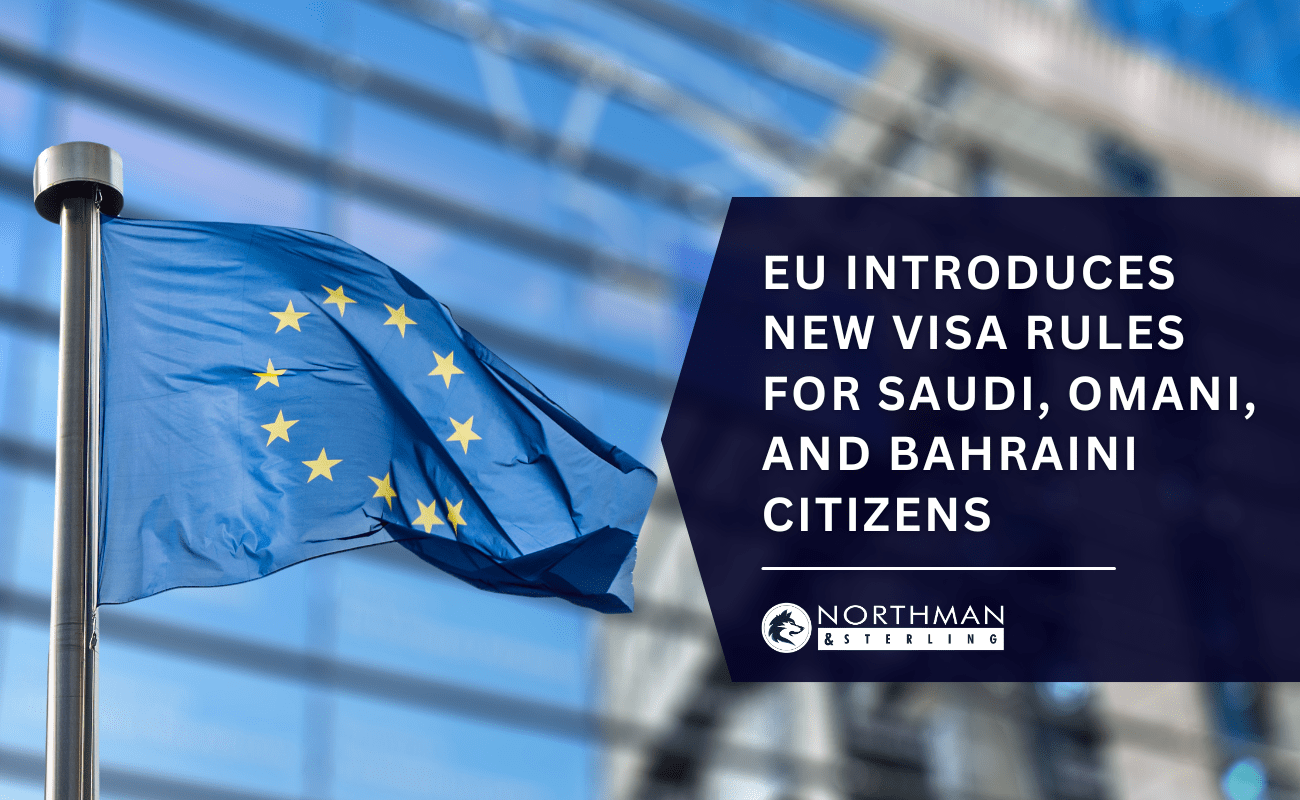- info@northmansterling.com
EU Introduces New Visa Rules for Saudi, Omani, and Bahraini Citizens

The European Union has introduced a significant relaxation of visa rules for citizens of Saudi Arabia, Oman, and Bahrain, allowing for easier access to the Schengen Area. As part of the new visa regulations, nationals from these three Gulf countries will now be eligible for multi-entry visas, valid for up to five years.
Overview of EU-GCC High-Level Forum
Announced at the EU-GCC High-Level Forum on Regional Security and Cooperation held in Luxembourg, several significant changes have been introduced to foster stronger interpersonal connections and enhance strategic alliances between the Gulf states and the European Union. The forum was attended by notable figures such as Prince Faisal bin Farhan of Saudi Arabia and also addressed critical issues like the situation in the Gaza Strip, emphasizing the urgency of establishing an immediate ceasefire.
Introduction of the "Cascade" Visa Code
The updated visa code, known as the “cascade,” simplifies the issuance of long-term multiple-entry visas, even for first-time applicants. This harmonized approach standardizes visa regulations across all GCC countries that require Schengen visas. It represents a significant step toward the potential for visa-free travel in the future.
Strategic Partnership and Future Prospects
The implementation of these new visa guidelines highlights the EU’s commitment to its Strategic Partnership with the Gulf, which includes important diplomatic and economic relations with countries like Saudi Arabia, Oman, and Bahrain. This development is also viewed as a precursor to the potential introduction of a Schengen waiver for these countries.
Schengen Area Expansion and Integration
The Schengen Area, currently the world’s largest free-travel zone, has recently expanded to include Bulgaria and Romania. This expansion continues to promote the free movement of people across Europe and sets the stage for further integrative measures, such as the proposed unified tourist visa by Gulf countries, akin to the Schengen visa.
Enhancements in Visa Regulations
These enhancements in visa regulations not only promise to streamline travel but also aim to boost mutual understanding and cooperation between the European Union and the Gulf Cooperation Council countries. This development is paving the way for a more interconnected and accessible world.
